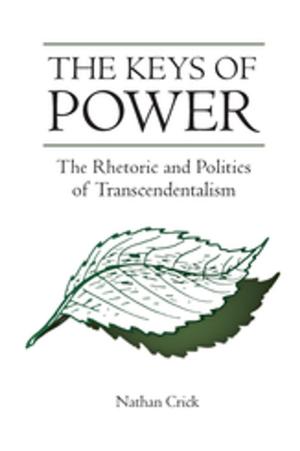| Author: | Derek C. Maus, Linda Wagner-Martin | ISBN: | 9781611174090 |
| Publisher: | University of South Carolina Press | Publication: | September 5, 2014 |
| Imprint: | University of South Carolina Press | Language: | English |
| Author: | Derek C. Maus, Linda Wagner-Martin |
| ISBN: | 9781611174090 |
| Publisher: | University of South Carolina Press |
| Publication: | September 5, 2014 |
| Imprint: | University of South Carolina Press |
| Language: | English |
Although 2002 MacArthur Fellowship recipient Colson Whitehead ardently resists overarching categorizations of his work, Derek C. Maus argues in this volume that Whitehead’s first six books are linked by a careful balance between adherence to and violation of the wisdom of past generations. Whitehead bids readers to come along with him on challenging, often open-ended literary excursions designed to reexamine accepted notions of truth. Understanding Colson Whitehead unravels the parallel structures found within Whitehead’s fiction from his 1999 novel The Intuitionist through 2011’s Zone One. In his choice of literary forms, Whitehead attempts to revitalize the limiting formulas to which they have been reduced by first imitating and then violating the conventions of those genres and sub-genres. Whitehead similarly tests subject matter, again imitating and then satirizing various forms of conventional wisdom as a means of calling out unexamined, ignored, and/or malevolent aspects of American culture. Although only one of many subjects that Whitehead addresses, race often takes a place of centrality in his works and, as such, serves as the prime example of how Whitehead asks his readers to revisit their assumptions about meanings and values. By jumbling the literary formulas of the detective novel, the heroic folktale, the coming-of-age story, and the zombie apocalypse, Whitehead reveals the flaws and shortcomings of many of the long-lasting stories through which Americans have defined themselves. Some of the stories Whitehead focuses on are explicitly literary in nature, but he more frequently directs his attention toward the historical and cultural processes that influence how race, class, gender, education, social status, and other categories of identity determine what an individual supposedly can and cannot do.
Although 2002 MacArthur Fellowship recipient Colson Whitehead ardently resists overarching categorizations of his work, Derek C. Maus argues in this volume that Whitehead’s first six books are linked by a careful balance between adherence to and violation of the wisdom of past generations. Whitehead bids readers to come along with him on challenging, often open-ended literary excursions designed to reexamine accepted notions of truth. Understanding Colson Whitehead unravels the parallel structures found within Whitehead’s fiction from his 1999 novel The Intuitionist through 2011’s Zone One. In his choice of literary forms, Whitehead attempts to revitalize the limiting formulas to which they have been reduced by first imitating and then violating the conventions of those genres and sub-genres. Whitehead similarly tests subject matter, again imitating and then satirizing various forms of conventional wisdom as a means of calling out unexamined, ignored, and/or malevolent aspects of American culture. Although only one of many subjects that Whitehead addresses, race often takes a place of centrality in his works and, as such, serves as the prime example of how Whitehead asks his readers to revisit their assumptions about meanings and values. By jumbling the literary formulas of the detective novel, the heroic folktale, the coming-of-age story, and the zombie apocalypse, Whitehead reveals the flaws and shortcomings of many of the long-lasting stories through which Americans have defined themselves. Some of the stories Whitehead focuses on are explicitly literary in nature, but he more frequently directs his attention toward the historical and cultural processes that influence how race, class, gender, education, social status, and other categories of identity determine what an individual supposedly can and cannot do.















